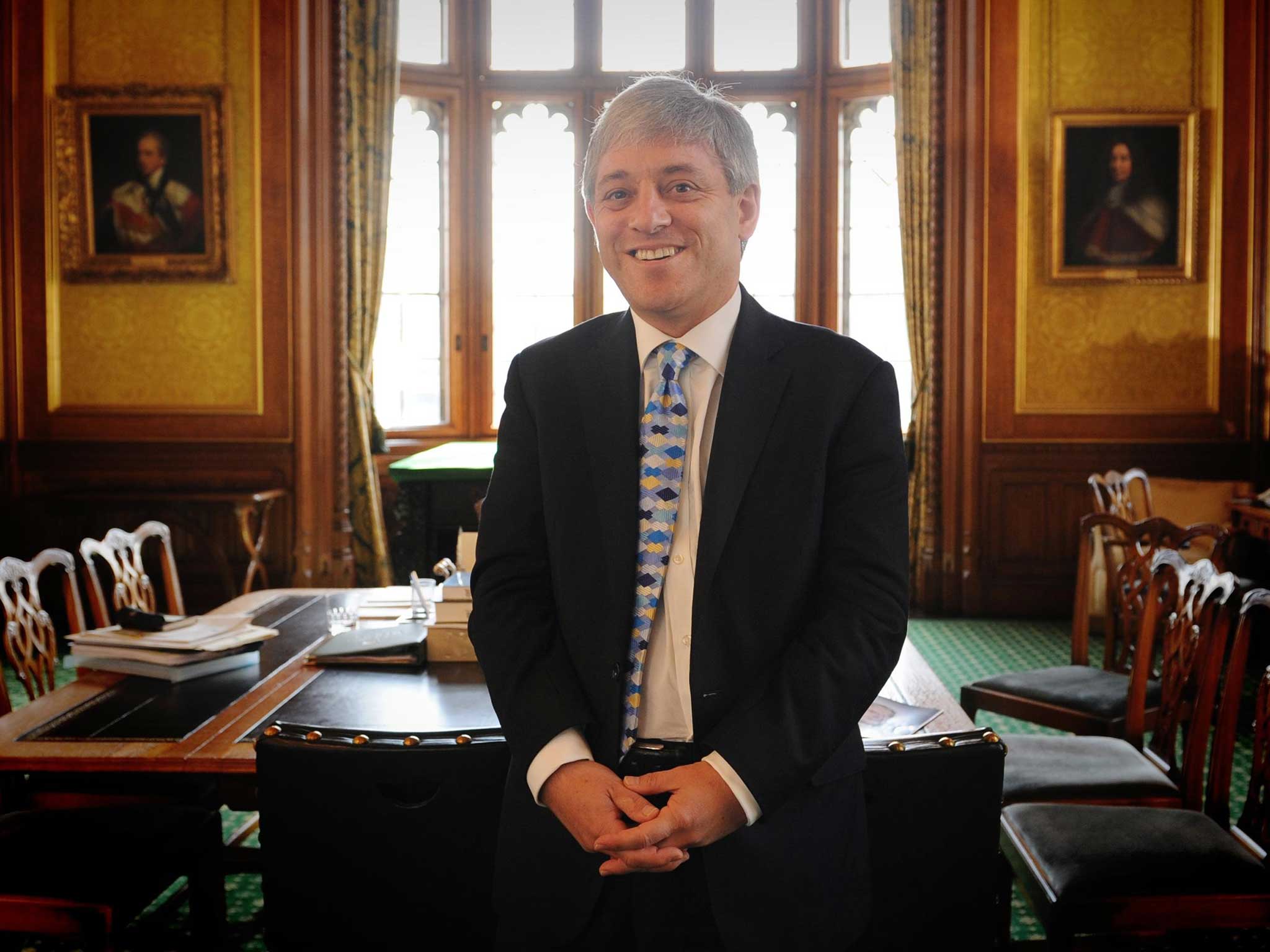'We're utterly disfranchised': Welcome to Buckingham, the constituency where votes don't count
John Bercow's constituency saw the largest number of spoiled votes anywhere in the country in the 2015 general election

As the general election ploughs on, a different type of campaign is raging in the sleepy constituency of Buckingham. In the territory, nestled between Oxford, Aylesbury and Milton Keynes, more than 75,000 voters have not been heard in Parliament since 2009.
Their representative is John Bercow, better known to the wider public as Speaker of the House of Commons. Unlike other MPs, Mr Bercow is independent and left his former party, the Conservatives, when he was elected to his position by the country’s politicians.
As a consequence of his impartiality, Mr Bercow - who keeps order in the Commons - cannot vote on legislative issues, unless it is to break a tie. Furthermore, it is a long-held tradition for the mainstream parties to respect the constituency of the Speaker and not to field candidates against him, whatever the constituency.
“We’re really disenfranchised. Our MP hasn’t got a vote!” says Phil Harriss, the man behind a petition which has been “snowballing” since the election was called.
Mr Harriss, an editor from the village of Brill, began his ‘Give us a voice, not a Speaker!’ campaign several years ago, after he learned of the convention.
The petition calls for a change in the way the parties approach the issue of Speaker.
“When the Speaker is elected [by other MPs], they should automatically resign their seat and trigger a by-election,” Mr Harriss tells The Independent. “The constituency would then be properly represented and the Speaker would still have a mandate.”
Buckingham's voters spoiled 1,289 ballots in 2015, some 700 more than anywhere else in that year's general election.
"It’s good that there’s someone independently minded in Parliament,” Mr Harriss says. “John Bercow showed he was before he became Speaker. But now it doesn’t matter what his opinions are because he has no vote.”
Mr Harriss believes for other parties not to stand is “archaic and blatantly anti-democratic”. The fragile state of British politics, coupled with the fact that no one in Buckingham was ever consulted, has made the issue particularly contentious this election.
He says: “It just feels like a cosy deal. The parties won’t stand against the Speaker, and to hell with the voters in that constituency.
“I think Parliament needs modernising and it should be along democratic lines.”
The campaign has widespread support in the local area. Harriet Coles, an entrepreneur also from Brill, says the system is “appalling” and she feels “utterly disenfranchised”.
Philippa Watt, a teacher from Oakley, says she is “livid” about the situation. “This will be the most important election I could have voted in since 1975,” she says. "When I think of what the Suffragettes went through to ensure my vote, this disenfranchisement makes my blood boil!"
Numerous similar comments appear on the petition’s web page. Locals have also reported strong support echoed in the pubs and halls of the villages which scatter the strongly Conservative rural constituency.
In April, Buckingham Liberal Democrat Sarah Lowes announced she would stand for the party to give Buckingham a “genuine alternative” -- but withdrew her candidacy just days later. The move greatly angered voters who demanded an increased choice of candidates.
“I was devastated,” says Ms Coles. “I felt cheated. First it was tuition fees, now this.”
The only candidates against Mr Bercow are from the Green Party and Ukip, and neither is likely to perform well in an area traditionally dominated by Tories.
Also standing is independent Scott Raven, who hopes his candidacy will highlight the issue of representation.
“What kind of a choice are the Greens and Ukip?” the 25-year-old politics teacher says. Mr Raven, standing on a liberal ticket, hopes residents will be encouraged to vote for him instead of spoiling their votes.
He says: “The local [mainstream] parties not standing shows that they don’t care about us or our local issues…I want to engage people more so that they know they can have a vote and it will make a difference.”
But Mr Raven describes the current situation as “total disenfranchisement”. “We don’t have a say,” he says. “The people that you are voting for don’t give a crap about us, it's just about party politics.”
Mr Bercow holds a huge 22,942 majority – though campaigners claim this is partly because there is “no alternative” – and is held in high regard by many constituents and other MPs.
He defended the present circumstances in a statement to The Independent. “By very longstanding convention, the three major political parties do not contest the seat in which the Speaker seeking re-election is standing, although this does not mean that he or she is unopposed,” it read.
"Following the 2010 General Election, Mr Bercow asked the House of Commons Procedure Select Committee to look into the Speaker’s Seat convention. The Committee did so, and decided in favour of preserving the status quo. Any change to the Speaker’s Seat would be a decision for the House of Commons, and not the Speaker."
But Mr Harriss called the Committee “obscure” and it became “lost in the web of Parliamentary intrigue”.
Even now, many voters “don’t realise the situation until they get into the booth,” he says. Some even still think Mr Bercow is a Conservative.
He hopes his campaign will publicise the issue, engage more citizens and change attitudes. And like Mr Raven, he worries about the impact the current system will have on young voters.
“This is about the principle, not the person,” Mr Harris says. “Right now, the Speaker is from Buckingham, so it’s on our watch.”
Join our commenting forum
Join thought-provoking conversations, follow other Independent readers and see their replies
Comments
Bookmark popover
Removed from bookmarks